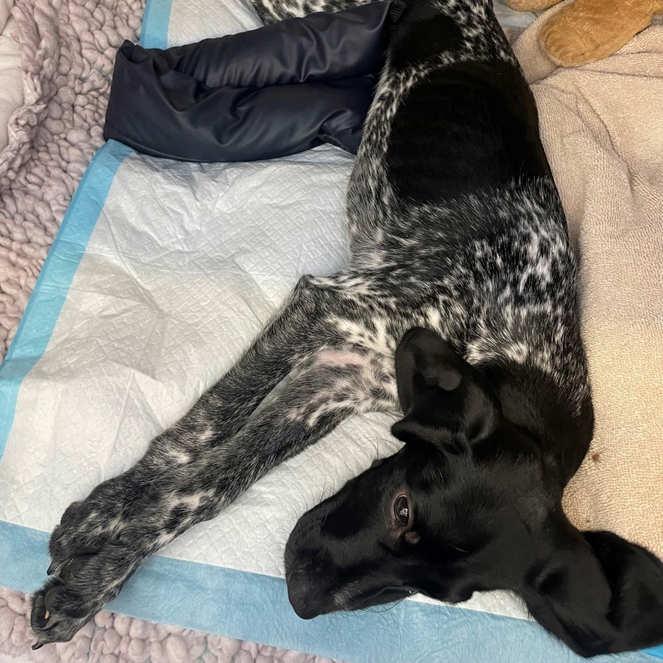Presentation
Gerdie, an 11-week old female German Short-haired Pointer, presented to the neurological team with a 3-day history of a rapid decline in her mobility. By the point of admit Gerdie was unable unable to walk, with no movement in her back legs and very minimal movement in her front legs. Gerdie had been a fit and well puppy prior to this point in time.
Diagnosis
Gerdie’s investigations were most consistent with Polyradiculoneuritis. Polyradiculoneuritis is an inflammatory disease that particularly affects the nerve roots (where the nerves exit the spinal cord). It is believed to be the canine equivalent of Guillain-Barre syndrome and is thought to occur due to an immune-mediated condition which is triggered by exposure to a stimulus (although this stimulus is currently unknown).
Dogs with this polyradiculoneuritis in general have a good prognosis and will usually improve over 4-8 weeks but some cases have reported to take up to 6 months, with a small percentage of dogs never being able to walk again. The main treatment is physiotherapy, Gerdie had daily physiotherapy for the duration her stay in the Small Animal Referral Hospital.
Initial physiotherapy examination
On initial examination Gerdie was subdued with a low head carriage, she was non-ambulatory (unable to walk) with no movement in her hindlimbs and very minimal proximal limb movement in her thoracic limbs, she had reduced postural control and was not able to independently hold a ‘sit’ or ‘down' position.
Alongside this, Gerdie was having physiotherapy sessions multiple times a day. The initial exercises included; passive range of motion of the fore and hindlimbs, digit stretches, supported sitting, tactile stimulation and Neuromuscular stimulation (NMES). The aim of this treatment plan was to maintain range of motion and limit muscle atrophy with NMES which is a device that sends electrical impulses to the nerve causing the muscle to contract. Gerdie was disengaged for the first week, and was started on Gabapentin as she appeared to be sore during her physiotherapy sessions.
Week 2 – By Gerdie’s second week she had made some subtle improvements, she had a neutral head carriage and had consistent movement in her proximal thoracic limbs. If positioned Gerdie was able to weight bear though her forelimbs when sitting, she still requires assistance due to her reduced postural control and weakness in her thoracic limbs. Gerdie remained unable to move her hindlimbs. Gerdie’s treatment plan remained the same, with the addition of hydrotherapy, this took place in the underwater treadmill.
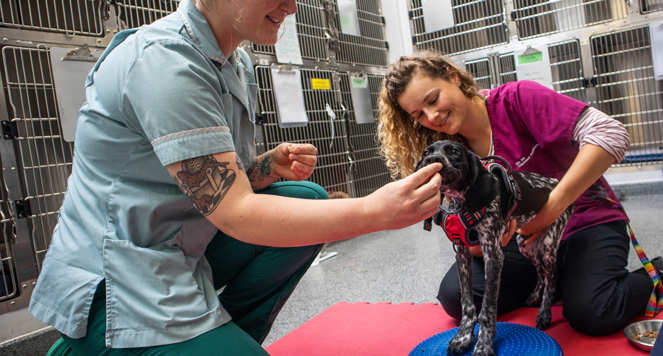
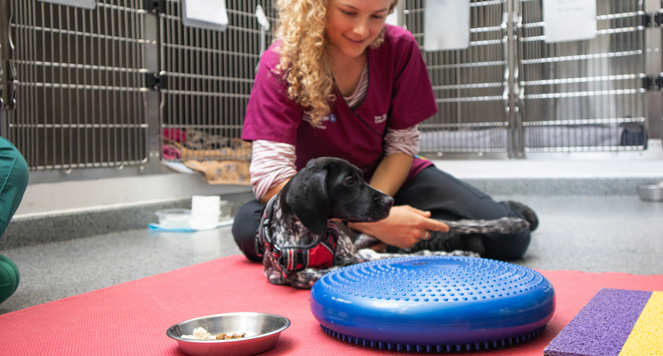
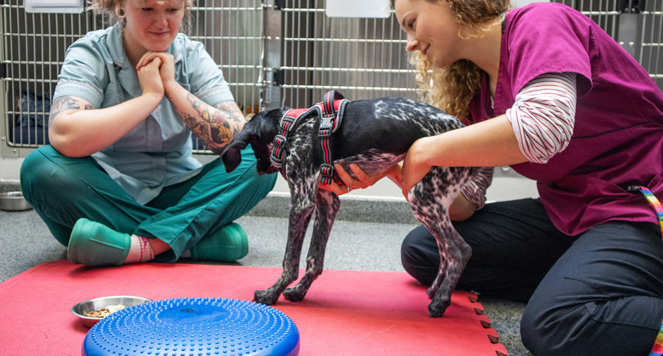
Week 3 – Gerdie was continuing to improve, she was showing interest in her environment and was more motivated to move independently. Gerdie was able to consistently step and weight bear with her thoracic limbs, she was able to intermittently step with her pelvic limbs but fatigued quickly. Her exercises were progressed to improve her postural control, weight bearing ability and active movement. Progressions included, supported standing on a wobble cushion, assisted down to sit, supported walking on tactile surfaces.
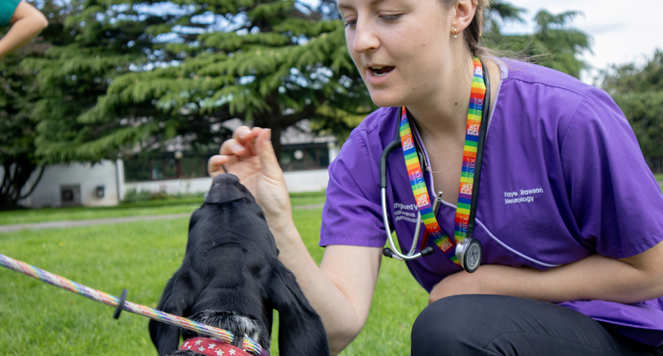
Week 4 – In Gerdie’s final week in hospital she was able to walk over short distances, she was still weak in all limbs so fatigued quickly when walking. Gerdie was tight in her hip flexor and quadriceps muscles and was uncomfortable while these were being stretched. Gerdie went home with a ‘help em up’ harness to help her walk and a home exercise plan to reduce the tightness in her hips and continue to improve her strength whilst managing her fatigue. Gerdie continues to have physiotherapy more locally to home and has made substantial improvements over time.
Here are some photos and videos kindly sent from Gerdie's owner documenting her recovery and showing great improvements. Running and playing, Gerdie is all wags and smiles!
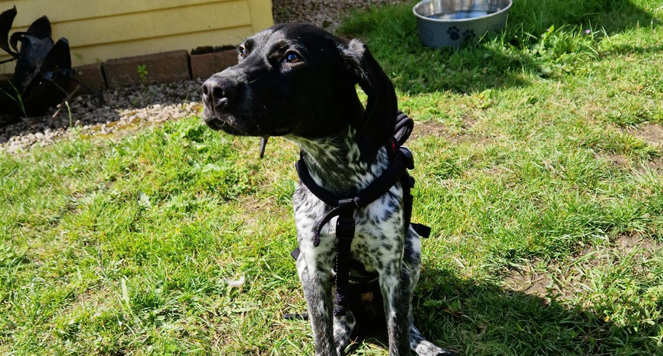
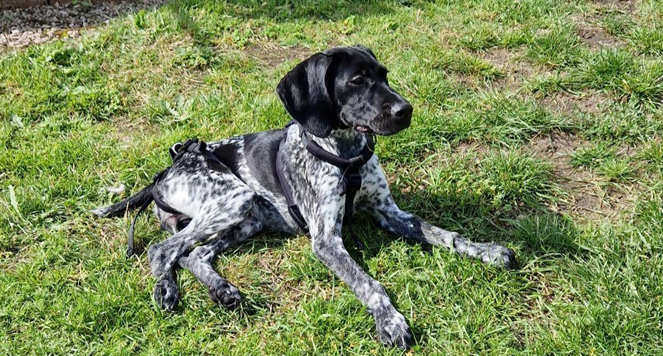
Gerdie's Recovery
This video is hosted externally on YouTube, please be aware that recommended or auto-play videos are not affiliated with Langford Vets.

